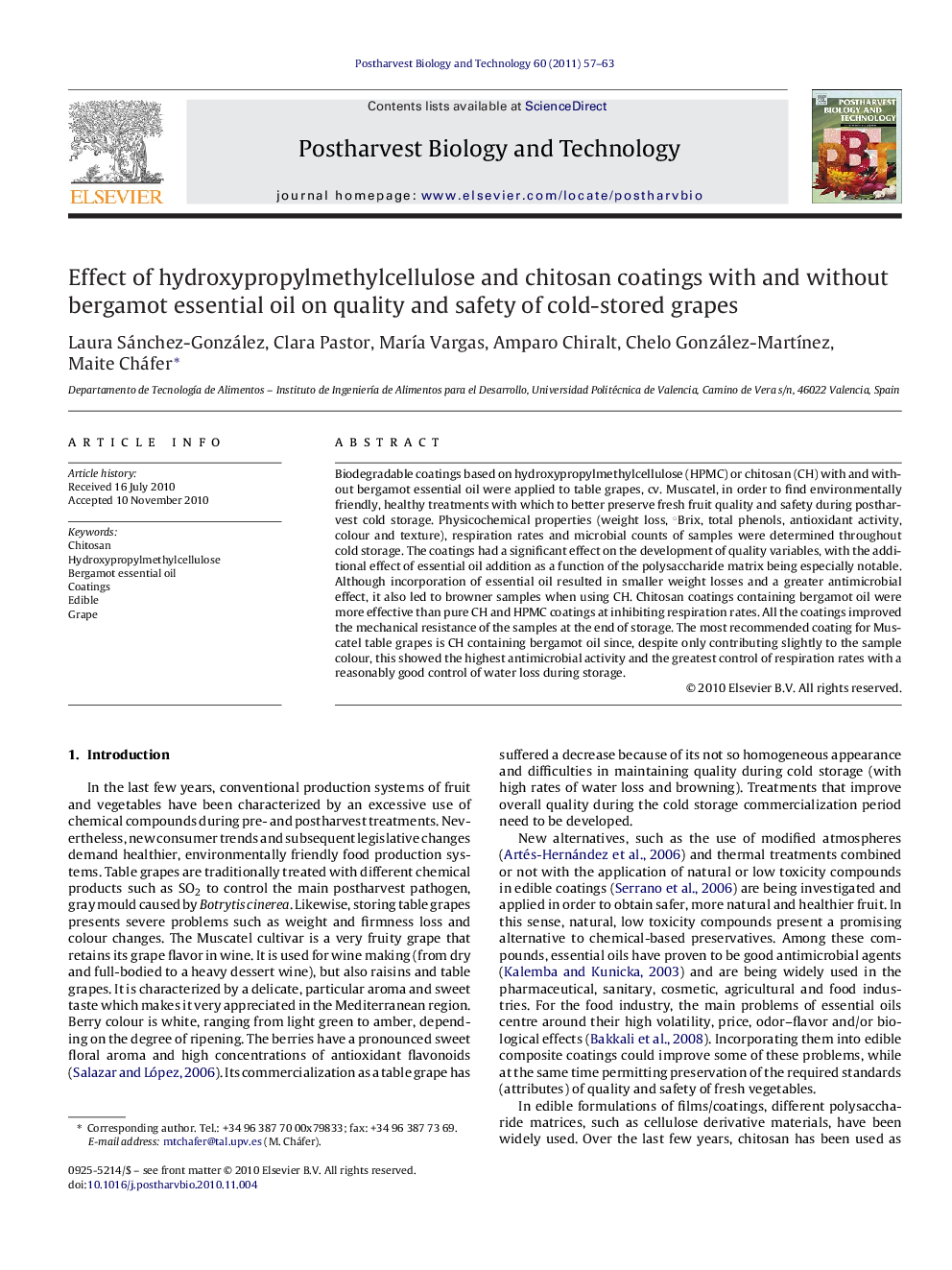| Article ID | Journal | Published Year | Pages | File Type |
|---|---|---|---|---|
| 4518953 | Postharvest Biology and Technology | 2011 | 7 Pages |
Biodegradable coatings based on hydroxypropylmethylcellulose (HPMC) or chitosan (CH) with and without bergamot essential oil were applied to table grapes, cv. Muscatel, in order to find environmentally friendly, healthy treatments with which to better preserve fresh fruit quality and safety during postharvest cold storage. Physicochemical properties (weight loss, °Brix, total phenols, antioxidant activity, colour and texture), respiration rates and microbial counts of samples were determined throughout cold storage. The coatings had a significant effect on the development of quality variables, with the additional effect of essential oil addition as a function of the polysaccharide matrix being especially notable. Although incorporation of essential oil resulted in smaller weight losses and a greater antimicrobial effect, it also led to browner samples when using CH. Chitosan coatings containing bergamot oil were more effective than pure CH and HPMC coatings at inhibiting respiration rates. All the coatings improved the mechanical resistance of the samples at the end of storage. The most recommended coating for Muscatel table grapes is CH containing bergamot oil since, despite only contributing slightly to the sample colour, this showed the highest antimicrobial activity and the greatest control of respiration rates with a reasonably good control of water loss during storage.
Research highlights▶ Coatings with or without bergamot oil (BO) improve weight losses and fruit firmness. ▶ Coatings slightly reduce respiration rates. ▶ In terms of antimicrobial activity chitosan coating with BO is the most effective. ▶ The most recommendable coating for table grape is the chitosan containing BO.
